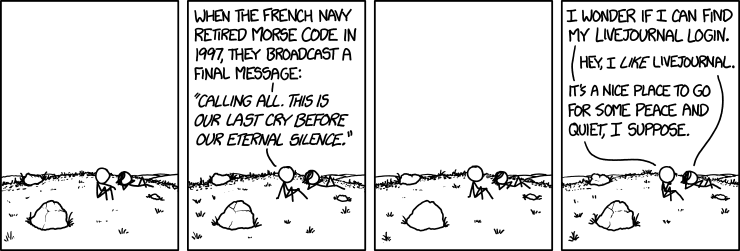Snowclone of the day
Sent in by A.C. from NZ:
My ISP's sign-on page has a 'daily picture', accompanied by some surprising(?) trivia. (Usually the surprise is how strained is the link to the picture and how badly they twist the language — often ending up misusing language in some way or other — this one is itself an example: is it really a fact *about* snow?)
Even a simple Google search offers an Inuktitut word for hello. (Admittedly also a large number of links alleging "no word for hello".)
Sparing you the screenshot, the "Daily Fact" is "Snow: Eskimos have hundreds of words for snow but none for hello."
Read the rest of this entry »


